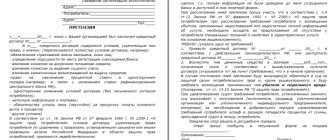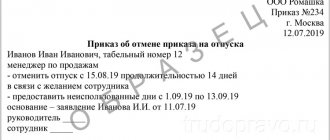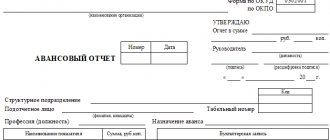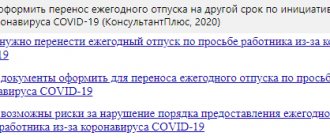There are a number of cases in which a person interested in resolving a dispute is required to file an application for a court order, rather than a lawsuit. That is why the proceedings are called writs and not claims. What is the essence, the difference and why is it important to separate the requirements? We'll talk about this below.
There are benefits to applying for a restraining order. Firstly, the period for consideration of a case is often much shorter. Secondly, it is a reduction in legal costs, incl. to pay the state fee. Thirdly, and importantly, the execution of an order is much faster than a court decision. But there are also a number of disadvantages, and sometimes they are significant.
Starting in 2021, you will not be able to independently choose the procedure for filing a lawsuit or such an application in court (you can cheat). Now, if the requirements are necessarily considered in writ proceedings, and the interested party has filed a civil claim, the statement of claim will be returned.
:
Application for a court order
Grounds for issuing a court order
A limited list of cases when an application for the issuance of a court order, and not a claim, is submitted to the court is established by Art. 122 Code of Civil Procedure of the Russian Federation. These are the so-called indisputable requirements, conclusions about the legality of the requirements for which the court will draw from the analysis of documents. After all, the application is considered by the court alone without summoning the parties.
In particular, a court order can be issued for:
- written transactions (for example, a loan agreement),
- notarized transactions (agreement on payment of alimony, etc.)
- alimony (but only for minor children and if there is no dispute about paternity, there is no need to involve other interested parties), etc.
- recovery of wages that have been accrued but not paid (also payment of vacation, payments and compensation upon dismissal and other amounts accrued to the employee),
- recovery of monetary compensation to an employee that has been accrued but not paid
- payment of utilities
- contributions from members of a homeowners association or a building cooperative and some others.
Please note that in the case of labor disputes, we are talking about amounts accrued but not paid. If there are questions about the amount of accruals or they were not made at all, a statement of claim for the recovery of wages will be required.
An interested person also submits an application for a court order when it comes to claiming movable property according to the requirements contained in Art. 122 Code of Civil Procedure of the Russian Federation. But the cost of such property should not exceed 500,000 rubles.
Sample court order against a debtor for contributions to SNT (217-FZ)
Judicial precinct of the magistrate No. Moscow
Claimant: (name) Address: Representative of the Claimant: (if any) Debtor: Full name
Date of Birth:
Place of birth: Place of residence:
Cost of claim: State duty:
Application (On issuing a court order to collect arrears of contributions)
Full name (Defendant) is the owner of land plot No. located on the territory of the Horticultural Non-Profit Partnership “Name” (Claimer, SNT) at the address:
Cadastral number of the land plot: (cadastral number). Land area 610 sq.m.
According to the appendix to the SNT charter, the full name is a member of the SNT “Name” (No. 44 in the list).
The Claimant has created all the necessary conditions for the Debtor to use infrastructure facilities, in particular: services for road repair, access control, lighting of public areas, garbage removal, etc. are provided in a timely manner.
Every year, at the general meeting of SNT members, the amount of the membership fee necessary to cover the costs of maintaining common property is established. The deadline for paying contributions is within 2 months from the date of the decision of the general meeting, but no later than August 1 of the year in which such a decision was made. (Clause 4.10 of the Charter).
Delay in payment of contributions entails the right to charge a penalty in the amount of 0.5% for each calendar day of delay. (clause 8.5)
By decisions of general meetings (2012, 2013, 2014, 2015, 2021, 2021, 2018, 2021) held in SNT, annual membership fees for SNT members were approved.
The annual fee for SNT members is the product of the size of the land plot and a fixed sum of money approved annually by SNT members at the general meeting.
The defendant did not pay membership fees for the period from 2012 to 2019.
The calculation of the amount for each year is given in the calculation of the amount of claims.
Within the meaning of Part 1 of Art. 209, art. 210 of the Civil Code of the Russian Federation, the right of ownership presupposes not only the owner’s ability to own, use and dispose of his property, but also imposes the obligation to bear the burden of maintaining the property belonging to him.
Membership in the SNT “Name” and the location of a land plot on the territory of the partnership, by force of law, implies the obligation of the owner of this land plot to bear the costs of maintaining the common property of this partnership.
In accordance with paragraphs. 2 clause 6 art. 11 of the Federal Law of July 27, 2021 N 217-FZ “On the conduct of gardening and vegetable gardening by citizens for their own needs and on amendments to certain legislative acts of the Russian Federation,” a member of the partnership is obliged to timely pay the fees provided for by the same Law.
Clause 2 of Art. 14 217-FZ establishes that the obligation to make contributions applies to all members of the partnership. Clause 7 of Art. 14 217-FZ provides that in cases provided for by the charter of the partnership, the amount of contributions may differ for individual members of the partnership if this is due to different volumes of use of common property depending on the size of the garden or vegetable plot of land and (or) the total size of the area of real estate objects property located on such a land plot, or the size of the share in the right of common shared ownership of such a land plot and (or) real estate objects located on it.
Clause 8 of Art. 14 217-FZ establishes that the amount of contributions is determined on the basis of the partnership’s income and expense budget and financial and economic feasibility study approved by the general meeting of the partnership’s members.
Clause 9 of Art. 14 217-FZ provides that the charter of the partnership may establish the procedure for collecting and the amount of penalties in case of late payment of contributions. Also, paragraph 10 of the above article provides for a judicial procedure for collecting contributions and penalties in the event of failure to pay them.
The debtor did not pay the fees.
On the basis of the above,
I ask the court
- To recover from the full name in favor of the Gardening Non-Profit Partnership “Name” 86,066 rubles 00 kopecks. as a debt for membership fees to SNT “Name” for the period from May 2012 to May 2021 inclusive.
- To recover from the full name in favor of the Gardening Non-Profit Partnership “Name” 10,146 rubles 23 kopecks. as interest for the use of other people's funds.
- To recover from the full name in favor of the Gardening Non-Profit Partnership “Name” 2,680 rubles 00 kopecks. as expenses for paid state duty.
Application:
- Power of attorney;
- Calculation of the amount of claims;
- Payment order for payment of state duty;
- Charter of SNT "Name"
- Certificate of state registration of a legal entity;
- Minutes of the general meeting of members of SNT “Name” 2019;
- Minutes of the general meeting of members of SNT “Name” 2018;
- Minutes of the general meeting of members of SNT “Name” 2017;
- Minutes of the general meeting of members of SNT “Name” 2016;
- Minutes of the general meeting of members of SNT “Name” 2015;
- Minutes of the general meeting of members of SNT “Name” 2014;
- Minutes of the general meeting of members of SNT “Name” 2013;
- Minutes of the general meeting of members of SNT “Name” 2012;
- Extract from the Unified State Register of Real Estate on the ownership of the Debtor's land;
- A copy of the application for the Debtor.
Representative's name, number and signature.
Tags: Court, Debt, Court order
Submitting an application to the magistrate
An application for a court order can be filed only if the amount of money or property being recovered does not exceed RUB 500,000.
The person who prepares and files the application for the issuance of a court order is called the “Collector.” And the opposite side is “Debtor”. The application sets out and provides written evidence of the circumstances on which the Claimant's claim is based. The compiler provides a calculation of the amounts collected and indicates the requirement itself in the application.
The application must be signed by the Claimant himself or his representative (when submitting a power of attorney to the court to represent interests).
Note! As part of writ proceedings, other than state fees, other legal costs are not compensated. That is, the court will refuse the application to recover the costs of paying for the representative’s services.
The state fee is paid in the amount of 50% of the amount that would be paid when filing a claim. Benefits for its payment also apply to writ proceedings. Therefore, in our example, the state duty receipt is not attached. And if there are no benefits, then it is mandatory to attach a receipt to the application.
The claimant submits an application for the issuance of a court order taking into account the rules of jurisdiction. Only the magistrate's court considers such applications. At the place of residence of the defendant (when the law allows - at the place of residence of the plaintiff or the location of real estate).
Since the court order must contain the bank account details of the claimant, we recommend attaching the corresponding extract to the application as an appendix.
How is an application for a court order processed?
The application received by the judge is examined for compliance with the requirements of Article 122 of the Code of Civil Procedure of the Russian Federation (whether there are grounds), the availability of documents confirming the claims of the claimant, and payment of the state duty. The court has the right to refuse only in cases where there are no grounds set out in Art. 122 Code of Civil Procedure. And the claimant’s claim arises from other legal relations. And also if the court finds a dispute about the law. For example, cases of moral damage or challenging paternity, etc. And also if the debtor lives abroad.
If everything is in order, then there will be no court hearing to consider the application for a court order. Within 5 days from the date of filing the application, the court issues a court order.
The court will send a copy of the order to the Debtor. He has the right to file an application to cancel the court order within 10 days. At the same time, it does not matter whether it is justified. The fact that he went to court is enough. And this is the main disadvantage of writ proceedings. After all, during the time of sending documents and canceling the court order, the debtor can hide his property. The court order is canceled, and the Claimant will have to file a claim in court.
If no objections are received, the court order comes into force. The court issues a court order to the claimant to initiate execution of the court decision.
Thus, an application for a court order is always used if the requirement is specified in Art. 122 of the Code of Civil Procedure of the Russian Federation, and the court order itself has the force of a writ of execution.
How to return money by receipt?
Legislative acts establish a list of steps that an applicant must take to receive funds:
- Sending a pre-trial letter of claim. First, the creditor must draw up a document in which he describes in detail the terms of repayment of the debt and the consequences of non-payment. The claim is sent by registered mail. The maximum waiting period for a response is no more than one month. After the expiration of the period, the plaintiff has the right to appeal to the court.
- Choice of judicial authority. Monetary disputes over 50,000 rubles are resolved by the district court. If the debt is less than 50,000 rubles, then the conflict is resolved by a magistrate.
- Filing a petition with a claim. It would be ideal if a competent lawyer would draw up the application here. A correctly filed claim is one of the main factors in the successful outcome of the case.
- Payment of state duty. When opening a case, the plaintiff is required to pay a state fee. If he wins the case, the losing party will have to pay the court costs, including state fees.
- Submission of a set of documents. Documentation must be attached to the application. After which the plaintiff must await the verdict of the judicial authority.
Mandatory and standard production
Judicial proceedings can be simplified and standard. In the first case, the person filing the claim must apply to the court at the place of residence of the defaulter. Here, the decision is made behind closed doors and without the participation of the parties.
As a result, the judge issues a court order, copies of which are sent to all participants. It is worth noting that the defendant in this case has the authority to challenge the decision by sending his objection within ten days from the date of receipt.
Expert opinion
Popov Dmitry Alekseevich
Practicing lawyer with 7 years of experience in banking law
When the order is canceled due to the defendant’s objection, the plaintiff initiates standard proceedings. In this case, all participants are required to attend the meeting with their evidence. You can appeal the decision using an appeal.
Drawing up a claim
The procedure for creating claims is as follows:
- Specifying details. Here you must indicate the name of the court and its address. Then you need to enter information about the plaintiff and defendant, including their residential addresses and contact information. Don't forget to write down the amount of the claim.
- Document's name. Indicate the type of appeal, meaning by it the goals that the applicant wants to achieve.
- Introduction. Here it is necessary to describe the essence of the problem with the defendant. You must again indicate information about the defaulter, the amount of the debt, the date he received the funds and the name of the document (receipt, agreement).
- Rationale. Here are links to the regulatory framework.
- Description of the course of the controversial situation. This section must reflect what methods were tried by the plaintiff to return money in pre-trial proceedings.
- Clarification of monetary requirements. Indicate here your calculations taking into account the delay. This calculation must also be attached as a separate document.
- Resolution part. The lender's global requirements are stated here.
- List of applications. This should include a list of documents that can confirm the applicant’s case.
- Date and signature of the plaintiff.









